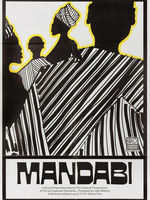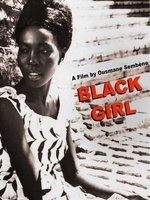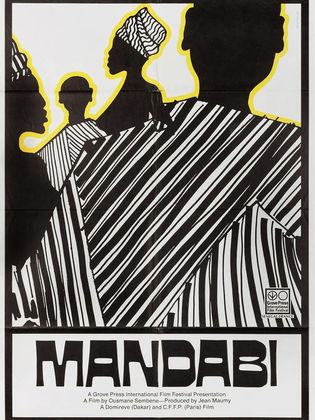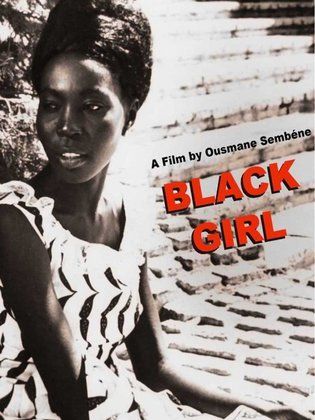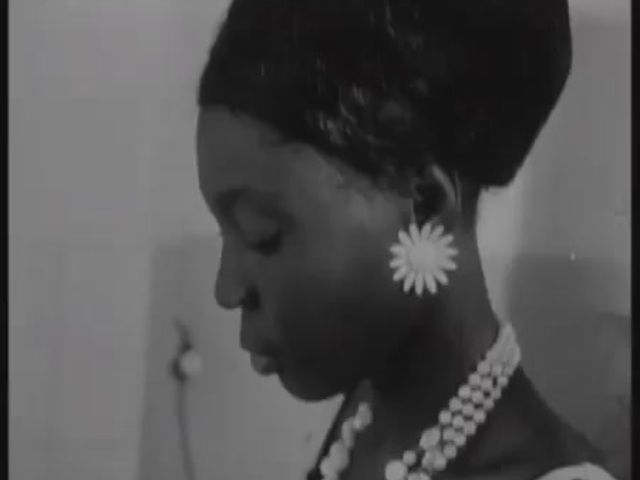Ousmane Sembene (1923 - 2007) عثمان سمبين
Biography
A Senegalese novelist and filmmaker, he is known as the "Father of African Cinema" and one of the pioneers of its industry throughout the continent. Sembene was born on January 1, 1923 to a fisherman father in Ziguinchor, Casamance region in northern Senegal. He received his...Read more primary education at an Islamic school, where he also learned some Arabic and then French in French schools, but he left school in 1936 to work with his father in fishing. In 1938, he left Ziguinchor for the capital, Dakar, where he worked in a number of manual jobs. In 1944, during World War II, Sembene was conscripted into the French army and later fought in the ranks of the Free French Forces. After the war, Osman returned to his country, where in 1947 he took part in the long railway workers' strike, on which he later based his novel God's Bits of Wood. Late that year, he sailed, hidden on a cargo ship, to France, where he worked as a laborer in a Citroën car factory in Paris and then as a port worker in Marseille. He became active in the trade union movement and became one of the leaders of the strike that aimed to obstruct the shipment of arms to France's war in Vietnam. From this experience he drew the material for his novel The Black Docker, his first novel in French, in which he dealt with the racism faced by black, Arab and Spanish workers in France. In his many subsequent works after his return to his country in 1960, Sembene focused on the continent's rampant corruption, economic problems, and the need for social change. Although his French literary works, such as Xala, which was later made into a film of the same name, and God's Bits of Wood, placed him in the same league as great African writers such as Wole Soyinka and Chinua Achebe, the lack of translation into English prevented him from achieving the same international fame as the latter two. However, he knew that his message would not reach beyond a small circle of intellectual elites, so he decided to turn to cinema as a window to the general public. In 1966, he produced and directed Black Girl (1966), a film based on his short story. The French-language film won the Jean Vigo Prize, which brought black African cinema in general and Sembene's talent in particular into the international spotlight. Since then, Sembene has continued to produce and direct film after film, based on his famous phrase: The African seventh art is an evening school for political and social literacy. His most important works include Mandabi (1968), Emitai (1971) and Guelwaar (1992). He died on June 9, 2007, at his home in Dakar, Senegal, at the age of 84.
Watch Online (Sponsored By Yango Play)
-
-
- One Last Sin
- 2025 - Series
-
-
- Siko Siko
- 2025 - Movie
-
-
- Al Shater
- 2025 - Movie
-
-
- 2 Qahwa
- 2025 - Series
-
-
- Rocky El Ghalaba
- 2025 - Movie
-
-
- Ward w Shokolata
- 2025 - Series
Known for
(According to views)
More details
A Senegalese novelist and filmmaker, he is known as the "Father of African Cinema" and one of the pioneers of its industry throughout the continent. Sembene was born on January 1,...Read more 1923 to a fisherman father in Ziguinchor, Casamance region in northern Senegal. He received his primary education at an Islamic school, where he also learned some Arabic and then French in French schools, but he left school in 1936 to work with his father in fishing. In 1938, he left Ziguinchor for the capital, Dakar, where he worked in a number of manual jobs. In 1944, during World War II, Sembene was conscripted into the French army and later fought in the ranks of the Free French Forces. After the war, Osman returned to his country, where in 1947 he took part in the long railway workers' strike, on which he later based his novel God's Bits of Wood. Late that year, he sailed, hidden on a cargo ship, to France, where he worked as a laborer in a Citroën car factory in Paris and then as a port worker in Marseille. He became active in the trade union movement and became one of the leaders of the strike that aimed to obstruct the shipment of arms to France's war in Vietnam. From this experience he drew the material for his novel The Black Docker, his first novel in French, in which he dealt with the racism faced by black, Arab and Spanish workers in France. In his many subsequent works after his return to his country in 1960, Sembene focused on the continent's rampant corruption, economic problems, and the need for social change. Although his French literary works, such as Xala, which was later made into a film of the same name, and God's Bits of Wood, placed him in the same league as great African writers such as Wole Soyinka and Chinua Achebe, the lack of translation into English prevented him from achieving the same international fame as the latter two. However, he knew that his message would not reach beyond a small circle of intellectual elites, so he decided to turn to cinema as a window to the general public. In 1966, he produced and directed Black Girl (1966), a film based on his short story. The French-language film won the Jean Vigo Prize, which brought black African cinema in general and Sembene's talent in particular into the international spotlight. Since then, Sembene has continued to produce and direct film after film, based on his famous phrase: The African seventh art is an evening school for political and social literacy. His most important works include Mandabi (1968), Emitai (1971) and Guelwaar (1992). He died on June 9, 2007, at his home in Dakar, Senegal, at the age of 84.
- Nationality:
- Senegal








